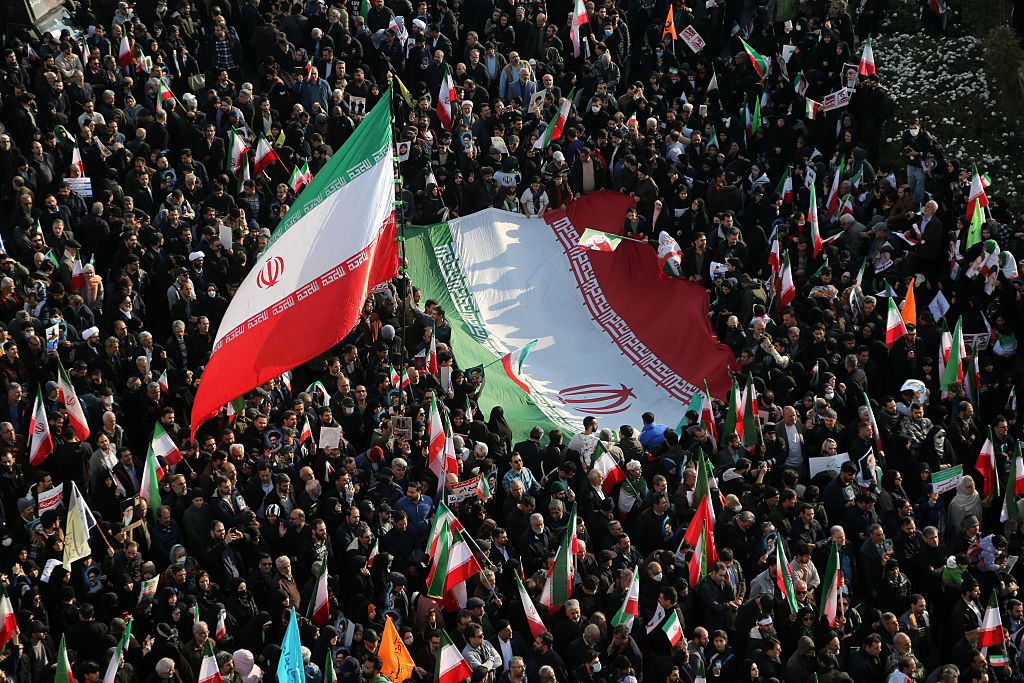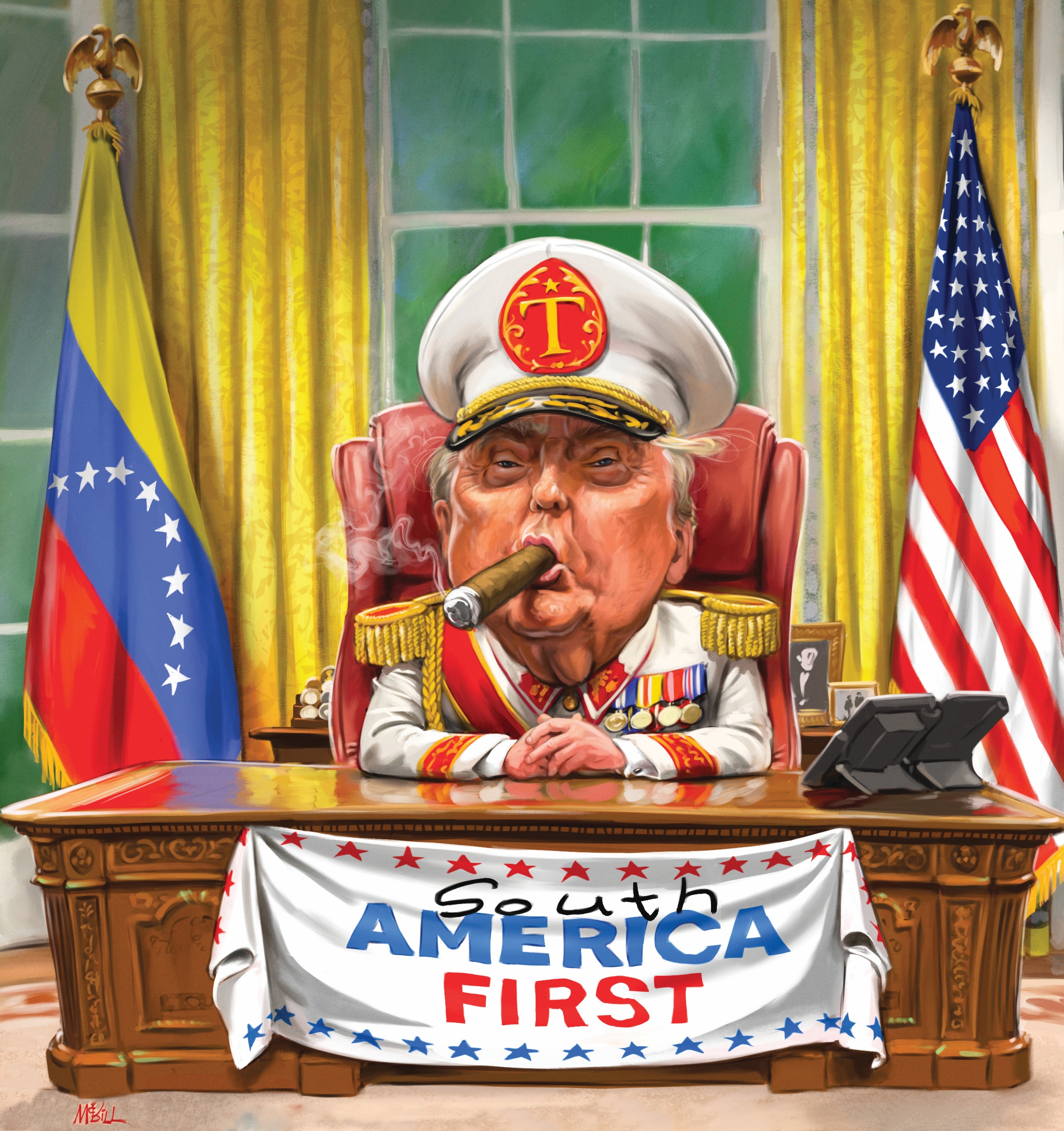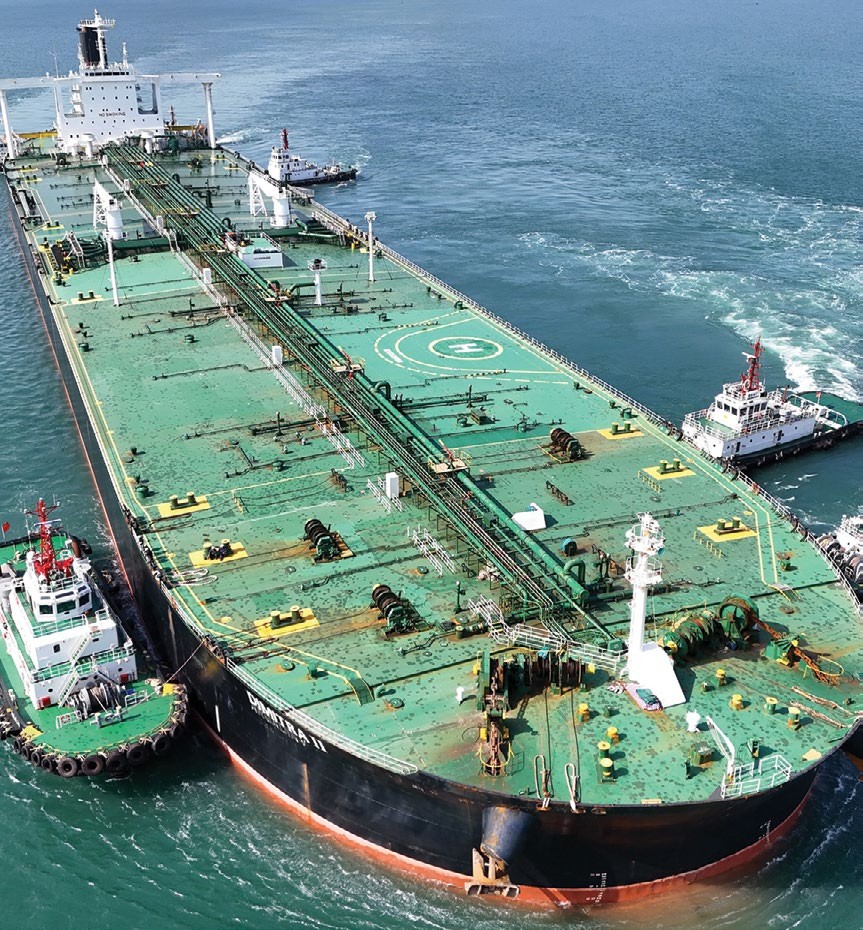Oil price stays steady as tensions in Middle East boils over
Oil prices surged after Israel's attack on Iran, but the global market for the commodity is forecast to remain well-supplied until 2030

Get the latest financial news, insights and expert analysis from our award-winning MoneyWeek team, to help you understand what really matters when it comes to your finances.
You are now subscribed
Your newsletter sign-up was successful
Want to add more newsletters?

Twice daily
MoneyWeek
Get the latest financial news, insights and expert analysis from our award-winning MoneyWeek team, to help you understand what really matters when it comes to your finances.

Four times a week
Look After My Bills
Sign up to our free money-saving newsletter, filled with the latest news and expert advice to help you find the best tips and deals for managing your bills. Start saving today!
“Global oil markets have just become a lot more flammable,” says The Economist. On 13 June, two years of heightened Middle East tension finally boiled over into a full-scale Iran-Israel war. With Iran on the ropes, there is a growing risk that its leadership will resort to “desperate measures”. Tehran might close the Strait of Hormuz, the narrow channel through which 30% of global seaborne crude and 20% of liquid natural gas is conveyed. Worse, many of the Gulf’s largest oil-production sites are within range of Iranian missiles. Such retaliation could send prices soaring above $120 a barrel, according to estimates by bank JPMorgan Chase.
Oil prices surged as much as 12% following the first Israeli air strikes to trade at around $72 a barrel this week. All told, that is a fairly measured reaction, says Henry Allen of Deutsche Bank. Brent crude is still well off its 2024 average level of $80 a barrel. Two brief episodes of Iran-Israel exchanges last year have numbed commodity traders to geopolitical risk.
If anything, the real surprise is “the extent of the market’s resilience to repeated shocks”. So far “not a single barrel has been lost” amid the wave of Middle East violence that began in October 2023, says Javier Blas on Bloomberg. Traders have learnt that shorting crude even as bombs and missiles fly is a “winning trade”.
MoneyWeek
Subscribe to MoneyWeek today and get your first six magazine issues absolutely FREE

Sign up to Money Morning
Don't miss the latest investment and personal finances news, market analysis, plus money-saving tips with our free twice-daily newsletter
Don't miss the latest investment and personal finances news, market analysis, plus money-saving tips with our free twice-daily newsletter
Oil well supplied through 2030
Geopolitical drama aside, oil markets show every sign of being oversupplied. Global inventories have been running “above seasonal norms” for months. The latest spike may just enable US shale producers to keep pumping profitably at levels that would otherwise not have been possible. Indeed, the global oil market is forecast to remain “well supplied through the end of the decade”, according to International Energy Agency forecasts, reports Giulia Petroni in The Wall Street Journal. Global demand for oil is forecast to rise to a plateau of 105.5 million barrels per day (mbpd) in the coming years, but supply is likely to increase even more to 114.7 mbpd over the same period.
Cooling appetite for oil has much to do with China, says Hans van Leeuwen in The Telegraph. Total demand for oil in the Middle Kingdom is forecast to dip from 18.1 mbpd last year to 16.7 mbpd come 2030 due to mass adoption of electric vehicles (EVs). Chinese motorists purchased two in every three EVs sold globally in 2024. Meanwhile, for British motorists, “every $10 increase in oil adds 7p at the petrol pump”, David Oxley of Capital Economics tells Szu Ping Chan in the same paper. Still, the UK economy is much less dependent on cheap oil for economic growth than it used to be.
In 1975, one tonne of oil equivalent was needed to produce roughly $8,333 in GDP according to World Bank figures, says Gillian Tett in the Financial Times. In 2022 the same amount of oil generated $20,000 of GDP. An “oft-ignored” good news story is that greater energy efficiency and new energy sources are making us all less vulnerable to oil-price shocks than in the past.
This article was first published in MoneyWeek's magazine. Enjoy exclusive early access to news, opinion and analysis from our team of financial experts with a MoneyWeek subscription.
Get the latest financial news, insights and expert analysis from our award-winning MoneyWeek team, to help you understand what really matters when it comes to your finances.
Alex is an investment writer who has been contributing to MoneyWeek since 2015. He has been the magazine’s markets editor since 2019.
Alex has a passion for demystifying the often arcane world of finance for a general readership. While financial media tends to focus compulsively on the latest trend, the best opportunities can lie forgotten elsewhere.
He is especially interested in European equities – where his fluent French helps him to cover the continent’s largest bourse – and emerging markets, where his experience living in Beijing, and conversational Chinese, prove useful.
Hailing from Leeds, he studied Philosophy, Politics and Economics at the University of Oxford. He also holds a Master of Public Health from the University of Manchester.
-
 Can US small caps survive the software selloff?
Can US small caps survive the software selloff?US stocks have made their worst start to a year since 1995 relative to a global benchmark. But experts think some sectors of the market are still worth buying.
-
 Review: Eliamos Villas Hotel & Spa – revel in the quiet madness of Kefalonia
Review: Eliamos Villas Hotel & Spa – revel in the quiet madness of KefaloniaTravel Eliamos Villas Hotel & Spa on the Greek island of Kefalonia is a restful sanctuary for the mind, body and soul
-
 'Investors should brace for Trump’s great inflation'
'Investors should brace for Trump’s great inflation'Opinion Donald Trump's actions against Federal Reserve chair Jerome Powell will likely stoke rising prices. Investors should prepare for the worst, says Matthew Lynn
-
 The state of Iran’s collapsing economy – and why people are protesting
The state of Iran’s collapsing economy – and why people are protestingIran has long been mired in an economic crisis that is part of a wider systemic failure. Do the protests show a way out?
-
 Why does Donald Trump want Venezuela's oil?
Why does Donald Trump want Venezuela's oil?The US has seized control of Venezuelan oil. Why and to what end?
-
 Why Scotland's proposed government bonds are a terrible investment
Why Scotland's proposed government bonds are a terrible investmentOpinion Politicians in Scotland pushing for “kilts” think it will strengthen the case for independence and boost financial credibility. It's more likely to backfire
-
 What MoneyWeek has learnt in the last 25 years
What MoneyWeek has learnt in the last 25 yearsFinancial markets have suffered two huge bear markets and a pandemic since MoneyWeek launched. Alex Rankine reviews key trends and lessons from a turbulent time
-
 Investors can tap into juicy yields in overlooked companies’ debt and equity
Investors can tap into juicy yields in overlooked companies’ debt and equityOpinion Ian “Franco” Francis, fund manager, Manulife CQS New City High Yield Fund tells MoneyWeek where he’d put his money
-
 'BP’s days as an oil giant are numbered – a merger with Shell would be the best outcome by far'
'BP’s days as an oil giant are numbered – a merger with Shell would be the best outcome by far'Opinion BP has been in decline for some time, could a takeover by Shell save it?
-
 Investors remain calm as the Middle East war unfolds
Investors remain calm as the Middle East war unfoldsConflict in the Middle East has failed to shake oil or stock markets. Can the peace hold?